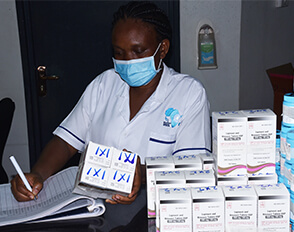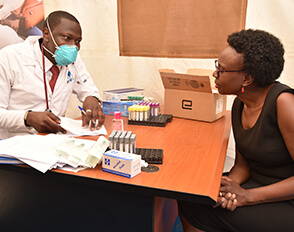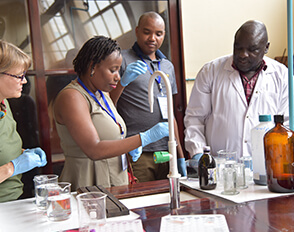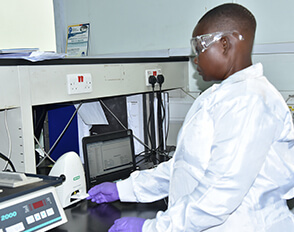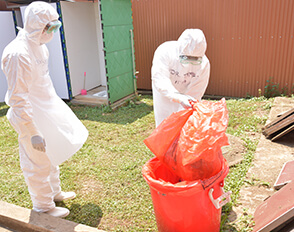
Previous outbreaks of the Ebolavirus Disease (EVD) have shown that there is a high risk of transmission in health facilities, putting both patients and healthcare providers at high risk. In the 2018-2020 EVD outbreak in west Africa, 16.6% of reported cases were hospital-acquired infections. Hospital-acquired infections affect the morale and motivation of healthcare workers, reducing the number of responders.
The first confirmed case of Sudan Ebola Virus Disease (SUVD) in Uganda had been admitted to Mubende regional referral hospital four days before receiving a positive test result. The patient had also visited two other lower-level health facilities before seeking care at the hospital. This meant there was a high chance of other SUDV patients already admitted to the wards.
Following the SUDV outbreak declaration, a team from the Infectious Diseases Institute (IDI), alongside the regional referral staff, initiated daily in-patient screening as a strategy to identify any cases on the ward. All patients admitted to the emergency, internal medicine, and pediatric inpatient wards at the Mubende Regional Referral Hospital were screened daily during the ward rounds. The interview covered questions on the history of symptoms of Ebola, place of residence, history of attending burials, history of unexplained deaths in the family or area of residence, and health centers visited before coming to the regional referral. Orientation of hospital staff was done to support daily inpatient screening in the different wards.
Through these efforts, 10 patients with symptoms consistent with SUDV were identified and immediately isolated. Their samples were sent to the national testing laboratory at the Uganda Virus Research Institute (UVRI), and eight out of the ten tested positive for SUDV. Of these, three were from the internal medicine ward, four were from the accident and emergency ward, and 1 was from the pediatric ward. These patients received supportive treatment in the Ebola Treatment Unit.
The early identification and isolation of these patients reduced the risk of EVD transmission to healthcare workers and other patients in the hospital wards. Inpatient screening is an essential strategy for preventing the further spread of the disease and controlling infections during outbreaks. With support from the Ministry of Health and partners, these efforts have been institutionalized as part of the strategy to contain the spread of infections within healthcare settings.
With funding from the Centres for Disease Control and Prevention, IDI supports national efforts to detect, prevent and respond better to outbreaks in Uganda.

